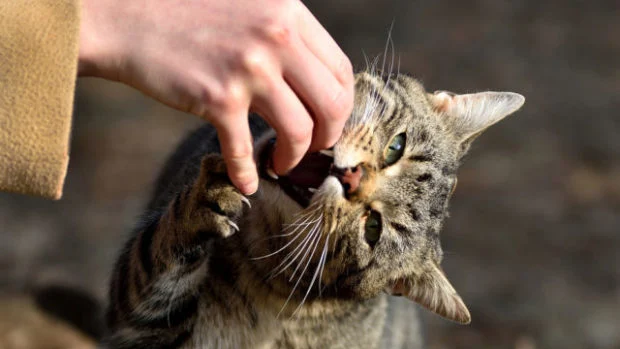
Quarantine restrictions in the city due to domestic cat rabies are set for two months.
As reported by the head of the Drohobytsky district branch of the Lviv Regional Center for Disease Control and Prevention of the Ministry of Health of Ukraine, Ihor Maykut, the Lviv Regional State Laboratory confirmed rabies in a domestic cat. The day before, the animal bit its owner – a resident of the street. Sambirska. The cat died after being bitten by a car. The owner submitted the animal’s body for examination, which confirmed the diagnosis of rabies.
With this in mind, the owner of the animal was given the appropriate preventive vaccination.
In addition, preventive measures are being taken in Drohobych to prevent the spread of the disease. In particular, they carry out mass vaccination of all cats and dogs using the “yard walk” method. Vaccination started from Sambirska street in Drohobych. As of Tuesday, November 14, more than 800 animals have been vaccinated. Also, owners of cats and dogs are encouraged to apply to the Drohobych District State Veterinary Hospital for a free vaccine for their pets (hospital address: Drohobych, 15 Pylypa Orlyka St.).
Quarantine restrictions in the city will be in effect until January 13, 2024 inclusive, provided there are no new cases of the disease.
In addition, rabies is an acute infectious disease of animals and humans caused by the neurotropic rabies virus. In the absence of timely emergency vaccination, it is life-threatening.
Symptoms of rabies in animals depend on the stage of the disease:
1. initial stage (lasts up to five days). Sick animals gnaw the bite site, have a weak appetite and eat inedible food, drooling and vomiting are observed. Affectionate, capricious and wary at the same time.
2. excited stage (2-3 days). The behavior of sick animals changes, they become aggressive, excited, try to escape and attack people and animals. Food is changing – animals gnaw the ground and eat inedible things. Convulsions, paralysis and strabismus are observed.
3. paralytic stage (2-4 days). Animals are exhausted, complete paralysis is observed, which leads to death.
Prevention of rabies is very important. For this you need:
1. regularly vaccinate domestic animals against rabies.
2. do not touch wild or homeless animals, do not feed them.
3. beware of homeless and wild animals that are not afraid to approach you themselves.
If an animal has already bitten or drooled at you (especially a wild or homeless one):
1. consult a doctor immediately!
2. if the animal is a pet, ask the owner to provide documents confirming its vaccination.
3. take a course of anti-rabies vaccinations, if prescribed by a doctor.
Source

